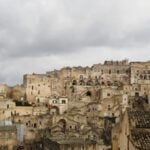Are you planning a trip to Italy and want to be able to communicate effectively during your visit? Learning some essential Italian travel vocabulary is the key to navigating the country with ease. Whether you’re ordering food at a restaurant, asking for directions, or checking into your accommodation, having a basic understanding of the language can enhance your travel experience.
Italian travel vocabulary encompasses a wide range of words and phrases that are essential for tourists to know. In this article, we’ll cover everything from greetings and common expressions to important words and phrases for navigating transportation, ordering food and drinks, checking into accommodations, exploring attractions, shopping, and handling emergency situations.
By mastering these essential Italian travel phrases and words, you’ll be better equipped to communicate with locals, immerse yourself in the culture, and make the most of your time in Italy. Whether you’re a first-time visitor or a seasoned traveler, having a solid grasp of Italian travel vocabulary will undoubtedly enhance your overall experience in this beautiful country. So let’s dive into the world of Italian travel vocabulary and start preparing for an unforgettable trip.
Essential Italian Travel Phrases
When traveling to Italy, it is important to have a basic understanding of Italian travel vocabulary, especially when it comes to greetings and common expressions. This knowledge will not only make your trip more enjoyable but will also help you connect with locals and show respect for the Italian culture. Whether you are greeting someone for the first time or expressing gratitude, having a few essential Italian travel phrases at your disposal can go a long way.
One of the most common greetings in Italy is “Ciao” which means hello or hi. This word can be used both when arriving and leaving and is suitable for both formal and informal situations. Another important phrase is “Buongiorno” which means good morning, a polite way to greet someone early in the day.
“Grazie” is another crucial term that means thank you, an expression that should always follow any favor or assistance received during your travels. Mastering these basic greetings and expressions will help ensure smooth interactions as you navigate through Italy.
In addition to greetings, understanding common expressions such as “Per favore” (please) and “Scusi” (excuse me) can help you in various social interactions during your travels in Italy. Being able to express politeness and ask for assistance politely will not only endear you to locals but also make your journey more pleasant overall. A little effort in learning and using these essential phrases can significantly enhance your travel experience in Italy.
| Italian Phrase | English Translation |
|---|---|
| Ciao | Hello/Hi |
| Buongiorno | Good Morning |
| Grazie | Thank You |
Navigating Transportation in Italy
When traveling in Italy, being able to navigate transportation is essential to getting around and exploring different cities. Whether you’re taking the train, bus, or taxi, it’s important to know some key Italian travel vocabulary to help you get to your desired destination smoothly.
One of the most important phrases to know when navigating transportation in Italy is “Dov’è la stazione?” which means “Where is the station?” This will come in handy when you’re trying to find the nearest train or bus station. Another useful phrase is “Quanto costa il biglietto?” which translates to “How much is the ticket?” This will be helpful when purchasing tickets for public transportation.
It’s also beneficial to familiarize yourself with common transportation terms such as “l’orario” (schedule), “la fermata dell’autobus” (bus stop), and “il treno” (train). Knowing these words will make it easier for you to read signs and ask for directions when using public transportation during your travels in Italy.
Ordering Food and Drinks
When traveling to Italy, one of the most enjoyable aspects is undoubtedly the food and drinks. To fully immerse yourself in the culinary experience, it’s essential to familiarize yourself with some basic Italian restaurant vocabulary. Whether you’re dining at a local trattoria or a high-end ristorante, knowing key phrases and words will not only enhance your dining experience but also impress the locals.
One of the first things you’ll need to know when ordering food and drinks in an Italian restaurant is how to ask for a table. The phrase “una tavola per uno/due” means “a table for one/two,” while “vorrei prenotare un tavolo per stasera” means “I would like to book a table for tonight.” Additionally, knowing how to request a menu (“il menu, per favore”) and ordering water (“acqua”) or wine (“vino”) are fundamental.
When it comes to ordering meals, understanding different courses is important. For example, “antipasti” refers to appetizers, “primi piatti” are first courses (usually pasta or risotto), and “secondi piatti” are second courses which typically consist of meat or fish. It’s also useful to learn common food items such as “pane” (bread), “insalata” (salad), and “pesce” (fish) as well as popular dishes like “pizza,” “pasta,” and “gelato”.
Furthermore, being familiar with beverage options is crucial. You may want to know how to order coffee (“un caffè”), espresso (“un caffè espresso”), beer (“birra”), or cocktails (“cocktail”). Understanding these basic Italian restaurant vocabulary terms will undoubtedly enhance your dining experience during your travels in Italy.
| Italian Phrase | English Translation |
|---|---|
| “Una tavola per uno/due” | “A table for one/two” |
| “Il menu, per favore” | “The menu, please” |
| “Un caffè espresso” | “An espresso” |
Checking Into Accommodations
When traveling to Italy, having a good understanding of Italian travel vocabulary can greatly enhance your experience, especially when it comes to checking into accommodations. Whether you plan on staying at a hotel or Airbnb, knowing the key terms and phrases will make the process smoother and more enjoyable.
Hotel Check-In
When checking into a hotel in Italy, it’s important to know some essential Italian travel vocabulary. The first step is approaching the front desk and saying “Buongiorno” or “Buonasera” (good morning/afternoon) followed by “Ho una prenotazione” (I have a reservation). You may be asked for your passport or identification (“Passaporto o documento d’identità”) as well as your credit card (“Carta di credito”).
Airbnb Stay
If you’re opting for an Airbnb during your trip, there are also key terms to be familiar with. When meeting the host, it’s polite to greet them with “Ciao” and say “Sono il tuo ospite” (I am your guest). Understanding directions such as “Dove si trova la chiave?” (Where is the key?) and basic requests like “Posso avere un altro cuscino?” (Can I have another pillow?) can make your stay more comfortable.
Having a grasp of these essential Italian travel phrases when checking into accommodations will not only help facilitate the process but also create a positive impression with locals. Whether you choose to stay at a hotel or Airbnb, being able to communicate effectively with staff and hosts will ensure a pleasant and stress-free experience during your trip in Italy.
Exploring Italian Attractions
Italy is a country known for its rich history, stunning architecture, and beautiful landmarks. When visiting Italy, it is essential to know the vocabulary related to tourist sites and landmarks in order to fully appreciate and understand the significance of these attractions.
Historical Sites and Monuments
When exploring Italy, you will encounter numerous historical sites and monuments that have stood the test of time. It’s important to familiarize yourself with Italian travel vocabulary related to these landmarks. For example, “il Colosseo” is the Italian word for the famous Colosseum in Rome, while “il Duomo” refers to a cathedral or church, such as the iconic Duomo di Milano.
Museum Vocabulary
Italy is home to some of the world’s most renowned museums, housing priceless works of art and cultural artifacts. Knowing the Italian travel vocabulary for museums can enhance your experience when visiting these institutions. For instance, “la Galleria degli Uffizi” refers to the Uffizi Gallery in Florence, which is known for its impressive collection of Renaissance art.
Natural Landmarks
In addition to its historical and cultural attractions, Italy also boasts breathtaking natural landmarks. Understanding Italian vocabulary related to these natural wonders can enrich your travel experience. Words like “il Vesuvio” (Mount Vesuvius) or “le Cinque Terre” (the Five Lands) will help you navigate and appreciate these natural wonders during your visit.
By mastering Italian travel vocabulary for tourist sites and landmarks, travelers can gain a deeper understanding and appreciation of Italy’s cultural heritage and natural beauty. Whether visiting historical sites, museums, or natural landmarks, having this knowledge will enhance your overall travel experience in Italy.
Shopping in Italy
When traveling in Italy, it is essential to familiarize yourself with useful Italian vocabulary for making purchases. Whether you’re shopping for souvenirs, clothing, or gifts, having a grasp of key phrases and words can enhance your shopping experience and help you communicate effectively with local vendors and store owners.
One of the most important phrases to know when shopping in Italy is “Quanto costa?” which means “How much does it cost?” This simple question will come in handy when inquiring about the price of an item. Additionally, learning numbers in Italian is crucial for understanding prices and making transactions. Practice saying numbers from one to ten and beyond to feel confident during your shopping excursions.
Another helpful phrase to remember is “Posso pagare con carta di credito?” which translates to “Can I pay with a credit card?” In today’s digital age, many businesses in Italy accept credit cards, but it’s always best to ask beforehand. If you prefer to pay with cash, be sure to have small bills and coins on hand as some smaller establishments may not be able to provide change for large denominations.
Lastly, knowing how to say “Grazie” (thank you) and “Arrivederci” (goodbye) will leave a positive impression on shopkeepers. Italians value politeness and manners, so expressing gratitude and bidding farewell courteously is greatly appreciated. By equipping yourself with these essential phrases and words, you can navigate the shopping scene in Italy with confidence and ease.
Emergency Situations
In case of an emergency while traveling in Italy, it’s essential to know some important Italian words and phrases to seek help. Whether you find yourself in need of medical assistance or reporting a crime, understanding these key terms can make all the difference.
One of the most crucial phrases to learn is “Aiuto.”, which translates to “Help.” in English. This simple word can be used to attract attention and signal that you are in distress. Additionally, knowing how to say “Chiamate un’ambulanza” (Call an ambulance) or “Ho bisogno di aiuto medico” (I need medical help) can be invaluable if you find yourself in a health emergency.
Should you encounter a situation that requires police intervention, being able to say “Polizia.” (Police.) or “Ho bisogno di aiuto della polizia” (I need police help) will ensure that local authorities are alerted promptly. It’s also important to have the contact information for your country’s embassy on hand and know how to ask for their assistance in Italian.
Having a grasp on these essential Italian travel vocabulary words for emergency situations will provide peace of mind during your trip. While no one plans for such events, being prepared with these key terms can make a potentially stressful situation more manageable. So before embarking on your journey, take the time to familiarize yourself with these important words and phrases.
Conclusion
In conclusion, mastering Italian travel vocabulary is essential for a seamless trip to Italy. Whether you are exploring the beautiful streets of Rome, savoring the delicious cuisine in Florence, or marveling at the historic sights in Venice, knowing key phrases and words in Italian can greatly enhance your travel experience. From ordering food and drinks to navigating transportation and checking into accommodations, having a grasp of the language will not only make your trip more convenient but also more enjoyable.
By familiarizing yourself with essential Italian travel phrases, you can engage with locals more confidently, navigate through unfamiliar places with ease, and immerse yourself more deeply in the rich culture and history that Italy has to offer. Furthermore, being able to communicate in emergencies can provide peace of mind and ensure your safety during your travels.
In light of this, taking the time to learn Italian travel vocabulary before embarking on your journey is well worth the effort. With a basic understanding of common expressions, restaurant vocabulary, transportation terms, and emergency words, you can make the most out of your visit to Italy and create lasting memories that will stay with you long after your trip has ended. So pack your bags, brush up on your Italian travel vocabulary – molto bene.
Frequently Asked Questions
What Phrases to Know When Traveling to Italy?
When traveling to Italy, it’s helpful to know common phrases like “ciao” (hello/goodbye), “per favore” (please), “grazie” (thank you), and “dov’è il bagno?” (where is the bathroom?). These basic phrases can go a long way in making communication easier during your trip.
What Do Italians Say Instead of Bon Voyage?
Instead of saying “bon voyage,” Italians typically say “buon viaggio” when wishing someone a good trip. This phrase is commonly used when seeing someone off on their travels or simply wishing them well on their journey.
How Do You Speak Italian for Travel?
When speaking Italian for travel, it’s important to familiarize yourself with common travel-related vocabulary such as transportation (“treno” for train, “aeroporto” for airport), accommodations (“albergo” for hotel, “camera” for room), and dining (“menù” for menu, “conto” for bill). Additionally, practicing polite expressions and simple conversational phrases can greatly enhance your travel experience in Italy.

I’m a passionate traveler, writer, and Italophile. My fascination with Italy’s history, art, and culture has led me on countless adventures across the Italian landscape. Through “I Live Italy,” I share my love for this extraordinary country and aims to inspire others to explore its boundless beauty.





